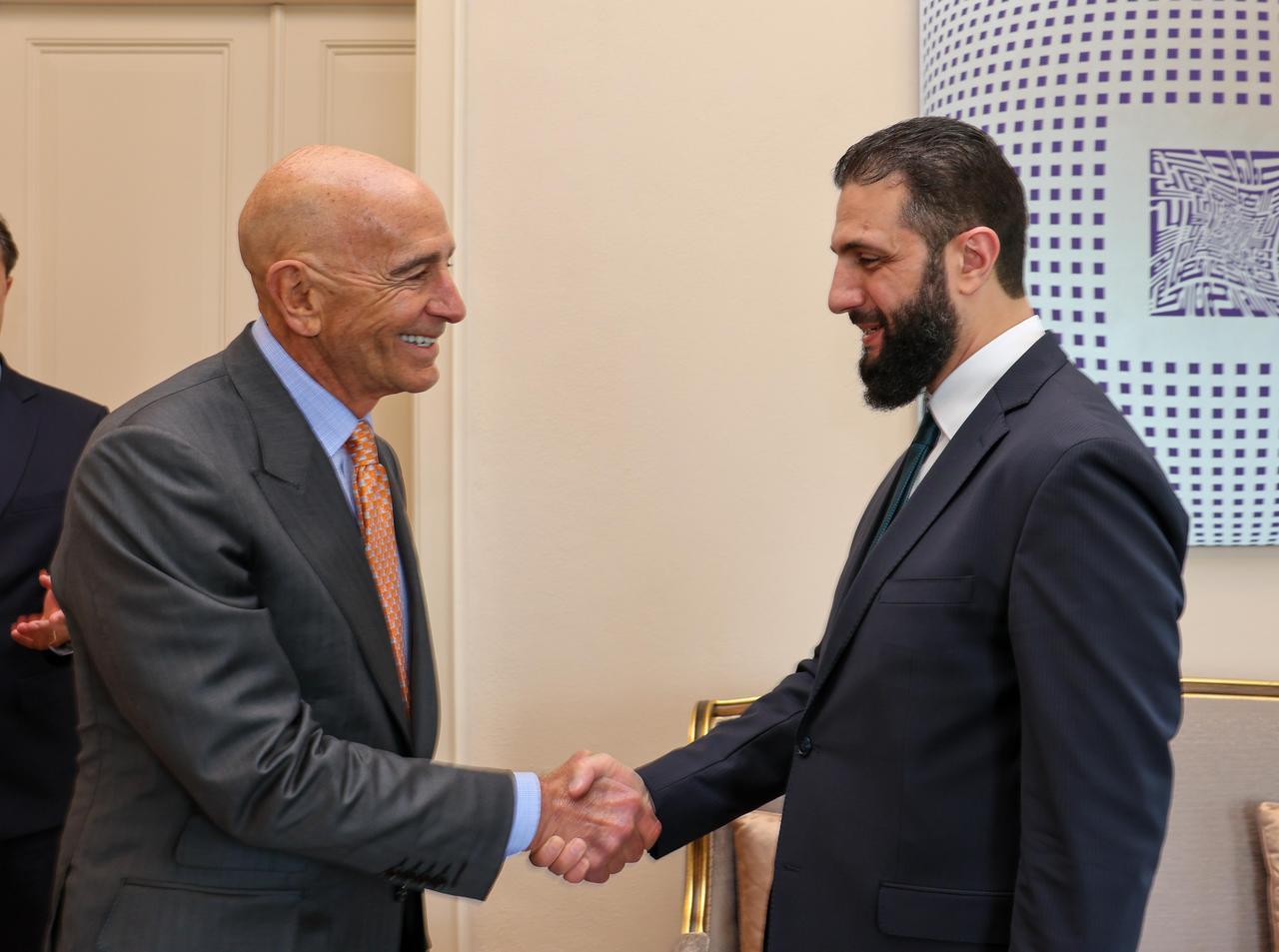
Syrian leader Ahmed al-Sharaa faces significant risks as he pushes for inclusive governance and engagement with the West, with concerns growing that militant factions may target him for assassination. “We need to coordinate a protection system around [Sharaa],” Ambassador Tom Barrack told Al-Monitor, highlighting the urgency of safeguarding the fragile new leadership. Barrack, Trump’s top envoy for Syria, also warned that delays in economic relief and the integration of foreign fighters could fuel instability and violence in the war-torn country.
Following Trump’s surprising decision to lift all US sanctions on Syria after meeting Sharaa in Riyadh, Barrack confirmed there are no conditions tied to the relief—only expectations of transparency and reform. The administration seeks to support economic recovery, SDF' terrorists' integration, and efforts against Daesh. Sanctions waivers will continue until Congress repeals the Caesar Act, with Trump expected to sign an executive order removing decades of Syria sanctions.
Syria faces ongoing challenges from Israel’s expanded military presence and control over buffer zones. Sharaa has pledged to honor the 1974 ceasefire and hinted at future normalization with Israel. Barrack hopes both sides maintain a “silent understanding” to avoid further conflict. Internally, sectarian violence and revenge killings threaten stability, but Barrack credits Sharaa’s government with managing these issues under difficult circumstances.